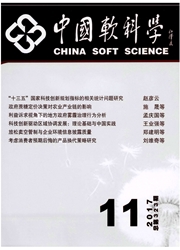

 中文摘要:
中文摘要:
以团结、奉献为核心的社会型工作价值观是我国国有企业在计划经济时期的主流价值观,这种价值观会让员工产生自律、乐于助人等利于企业和谐发展的行为。然而,改革使得国有企业利益重新整合,员工运用正当或灰色的手段获取利益,政治行为无法规避,员工对政治行为的知觉会使职业信念产生偏离,并对绩效产生负面影响。由此,发扬员工的社会型工作价值观在我国历经多年改革的国有企业显得尤为珍贵。本文以416名国有企业员工为样本,对组织政治知觉对社会型工作价值观与关系绩效的调节作用进行了实证研究,研究结果表明,薪酬与晋升政治知觉对社会型工作价值观与工作奉献具有负向调节作用,当薪酬与晋升政治知觉处于高位时,社会型工作价值观对工作奉献影响比薪酬与晋升政治知觉处于低位时明显减弱。在此基础上,对国有企业弘扬社会型工作价值观、遏制政治行为提出了政策建议。
 英文摘要:
英文摘要:
Collectivism and dedication are the main stream work values of State-owned enterprises(SOE) employees in planned economy time.But after many years' reform,organization politics is inevitable in SOE.So the influence of work value to behavior might be deviated because of perceptions of organizational politics(POPS).Using a sample of 416 employees in SOE,we examined the relationship between social work value and contextual performance,especially the mediating effects of POPS between two variables.The results revealed that compensation POPS moderate social work value-job dedication relationship.Further,we find that the relationship is weaker among employees perceiving high levels of organizational politics than among those perceiving low levels of politics.On the basis of that,we put forward policy sugessions for SOE to develop the social work value and restrain politics behavior.
 同期刊论文项目
同期刊论文项目
 同项目期刊论文
同项目期刊论文
 The Cross-cultural Impact on organizational learning: A comparative study between China and the Neth
The Cross-cultural Impact on organizational learning: A comparative study between China and the Neth 期刊信息
期刊信息
